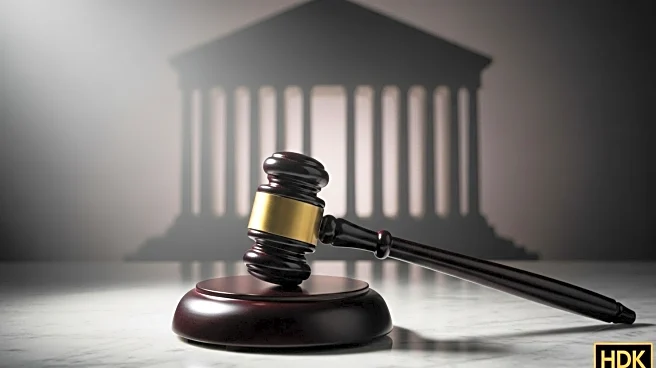What's Happening?
Utah state leaders have filed an emergency petition to the Utah Supreme Court, seeking a stay on a 3rd District Court order that mandates the redrawing of the state's congressional maps. This legal action follows Judge Dianna Gibson's decision, which requires Utah to publish proposed maps by September 25, in preparation for the 2026 midterm elections. The urgency of the petition is underscored by the state's argument that the remedial order harms the Legislature and disregards the will of the people as determined by Proposition 4, an anti-gerrymandering measure approved by Utah voters in 2018. The state contends that the current timeline does not allow for adequate time for an independent redistricting commission to recommend a map, as required by Proposition 4. The appeal also requests that HB2004, a bill passed in 2021 to alter Proposition 4, remain in place until all legal proceedings are resolved.
Why It's Important?
The outcome of this legal battle could significantly impact the political landscape in Utah, affecting how congressional districts are drawn and potentially influencing election outcomes. The case highlights the ongoing tension between voter-approved measures and legislative actions, with Proposition 4 representing a direct challenge to gerrymandering practices. If the Utah Supreme Court sides with the state, it could set a precedent for how similar cases are handled in other states, potentially affecting national redistricting efforts. Conversely, if the court upholds the district court's order, it could empower voter-led initiatives aimed at ensuring fair representation. The decision will also have practical implications for election officials and candidates, who need clarity on district boundaries to prepare for upcoming elections.
What's Next?
The Utah Supreme Court has yet to decide whether it will take up the appeal. If the court agrees to hear the case, it will need to balance the urgency of the upcoming election deadlines with the legal arguments presented by both sides. Meanwhile, state leaders have indicated their intention to comply with the district court's deadlines while exploring all legal avenues. The plaintiffs, including the League of Women Voters of Utah, argue that the state's 2011 congressional map should remain in effect until a new map is drawn. The court's decision will likely influence the timeline and process for redrawing Utah's congressional districts.









